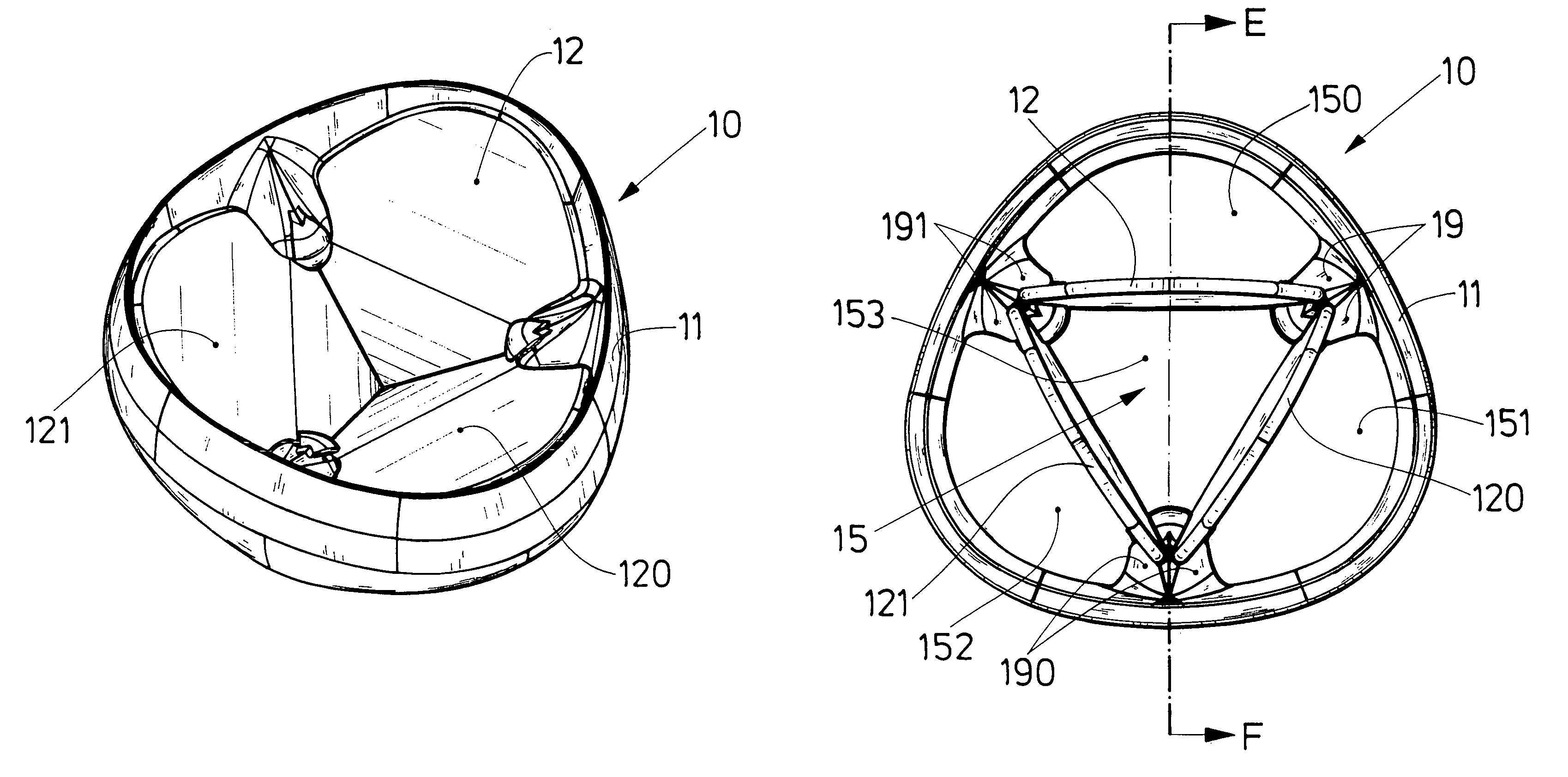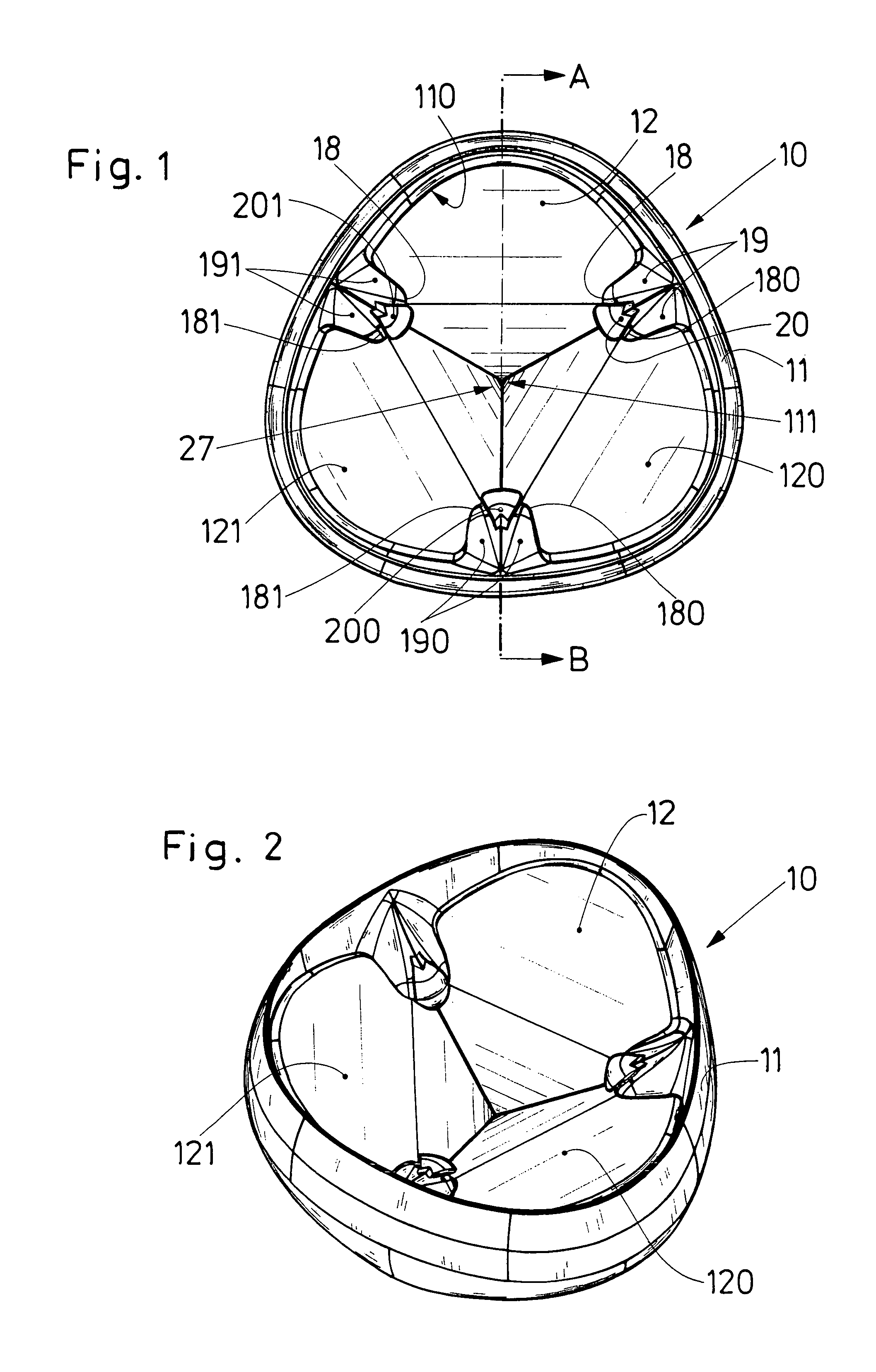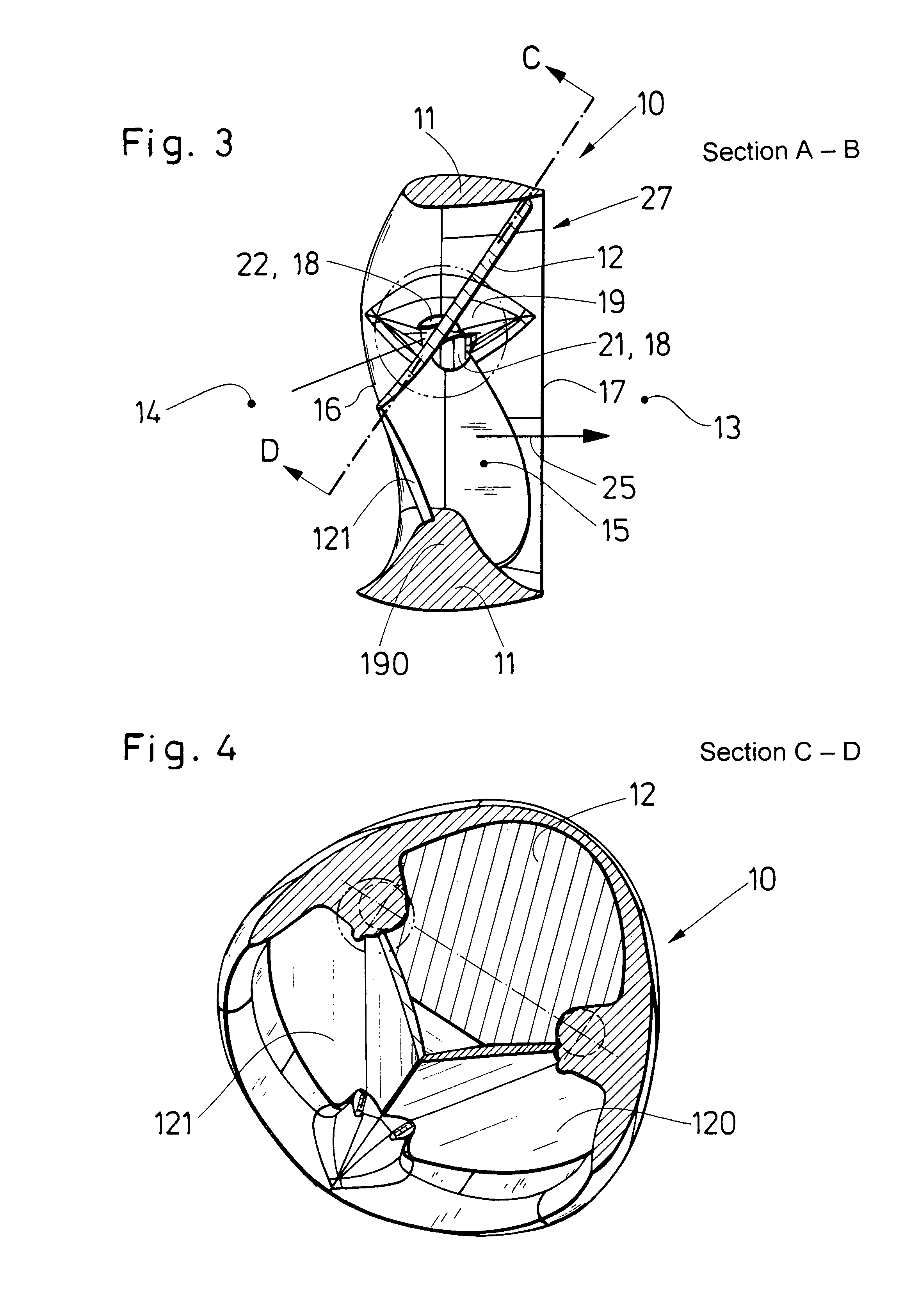Artificial heart valve
a heart valve and artificial heart technology, applied in the field of artificial heart valves, can solve the problems of no real satisfactory solutions and catastrophic results of the affected person, and achieve the effects of improving the resistance to wear of materials, low weight, and low wear
- Summary
- Abstract
- Description
- Claims
- Application Information
AI Technical Summary
Benefits of technology
Problems solved by technology
Method used
Image
Examples
Embodiment Construction
[0048]First reference is made to FIG. 1 where the artificial heart valve 10 is shown in a closed position and to FIG. 7 where the artificial heart valve 10 is shown in an open position. The FIGS. 1 and 7 are top views showing the heart valve 10 from that side, which, after implantation of the heart 14, faces the heart 14.
[0049]The artificial heart valve 10 comprises essentially an annular body 11, which has a shape resembling an equal-sided triangle with rounded corners. The annular body 11 however may also be circular or have a cross-section of another form. The artificial heart valve 10, described below as an example, includes three flap elements 12, 120, 121, however, in principle, the inventive concept can be realized also with a valve having only one flap element or two flap elements. Also designs with more than three flap elements 12, 120, 121 are conceivable. The annular body 11, which is insertable into the aorta 13 and the heart 14 in a known manner and which can be fixed t...
PUM
 Login to View More
Login to View More Abstract
Description
Claims
Application Information
 Login to View More
Login to View More - R&D
- Intellectual Property
- Life Sciences
- Materials
- Tech Scout
- Unparalleled Data Quality
- Higher Quality Content
- 60% Fewer Hallucinations
Browse by: Latest US Patents, China's latest patents, Technical Efficacy Thesaurus, Application Domain, Technology Topic, Popular Technical Reports.
© 2025 PatSnap. All rights reserved.Legal|Privacy policy|Modern Slavery Act Transparency Statement|Sitemap|About US| Contact US: help@patsnap.com



